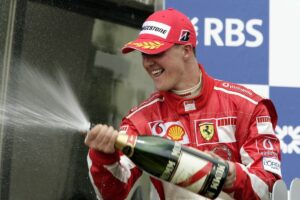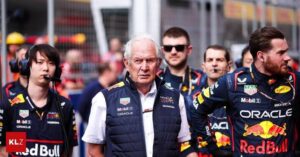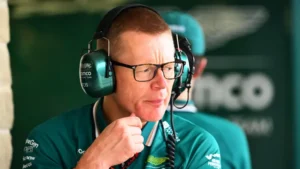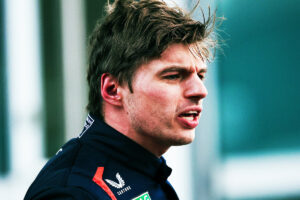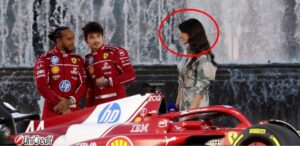JUST IN: Ralf Schumacher Drops a Bombshell – Verstappen, Not Hamilton, is the Next Michael!…..
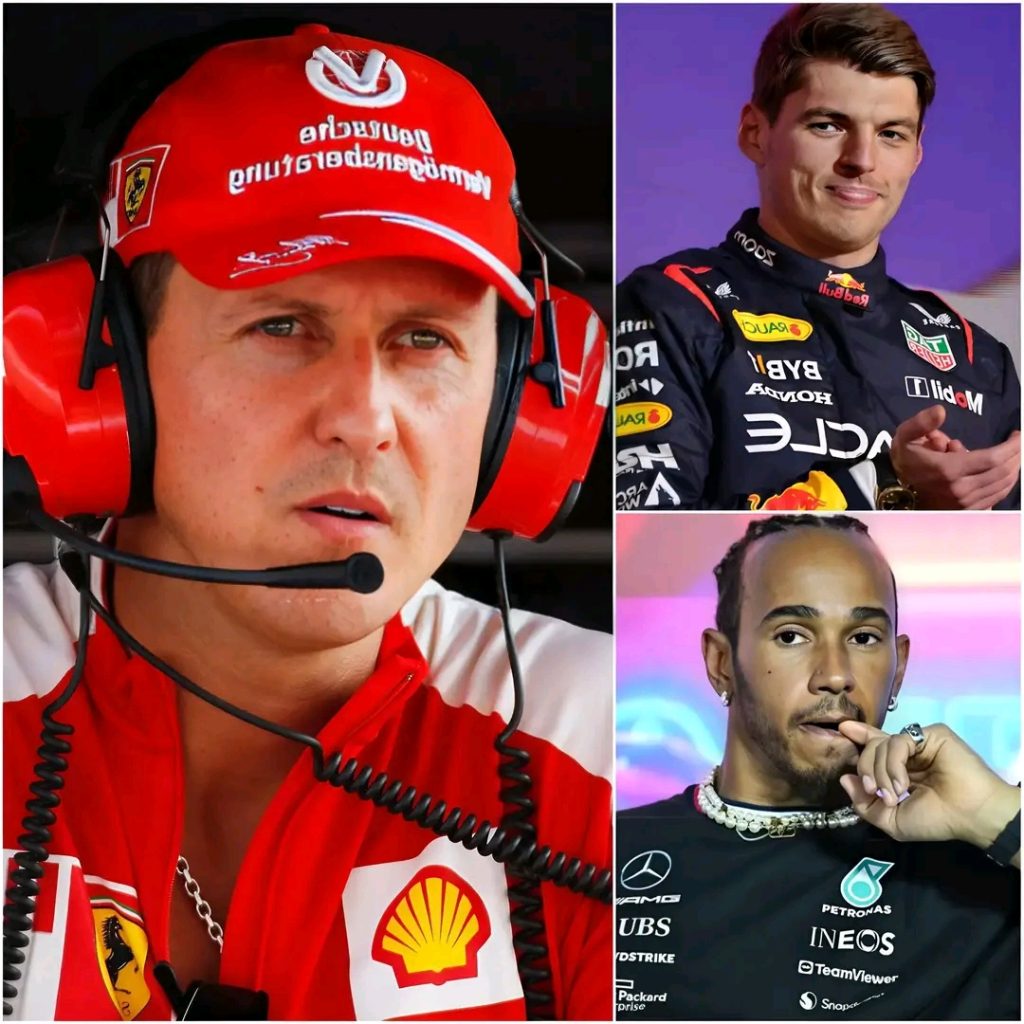
Ralf Schumacher Drops a Bombshell – Verstappen, Not Hamilton, is the Next Michael!
In a statement that has sparked a new wave of discussion in the motorsport world, former Formula 1 driver Ralf Schumacher has claimed that Max Verstappen, not Lewis Hamilton, is the true successor to the legacy of his brother, Michael Schumacher. This bold assertion challenges the ongoing debate over who truly deserves to be considered the greatest driver in Formula 1’s modern era.
Ralf Schumacher’s perspective carries weight, not only due to his own experience in Formula 1 but also because of the Schumacher family’s deep connection to the sport. His brother, Michael Schumacher, is a seven-time world champion and widely regarded as one of the greatest F1 drivers of all time. His remarkable career set a high bar for future drivers, both in terms of skill and mentality. Michael’s ability to dominate races, overcome adversity, and push the boundaries of performance has become the standard for greatness in F1. Ralf’s claim that Verstappen is the one who best embodies Michael’s spirit, more so than Hamilton, has therefore reignited the debate around who truly follows in Michael’s footsteps.
Verstappen, at just 26 years old, has already captured the attention of the F1 world with his fearless driving style and relentless pursuit of victory. With two world championships under his belt, Verstappen has shown the kind of skill, maturity, and aggression that sets him apart from many of his peers. His performances on the track often echo the traits that made Michael Schumacher so dominant during his era—an unyielding will to win, coupled with a fearlessness that sees him take risks others may shy away from. Ralf’s comparison between Max and his brother highlights these similarities, suggesting that Verstappen’s approach to racing mirrors the same tenacity and adaptability that defined Michael’s legacy.
While Hamilton’s career accomplishments are extraordinary, with seven world championships and a record number of race wins to his name, Ralf seems to draw a distinction between the paths Hamilton and Michael Schumacher took to their respective successes. Hamilton has dominated the sport in recent years, often in a Mercedes car that has been far superior to the competition. This has led some, including Ralf, to question whether Hamilton has faced the same level of challenge that Schumacher did in his time, or that Verstappen faces now. Ralf appears to be hinting that Verstappen’s battles in a more competitive environment better reflect the kind of struggle and drive that characterized Michael’s legendary career.
One of the key aspects of Ralf’s argument is that Verstappen’s success comes in an era where the field is highly competitive, and no single team or driver has an overwhelming advantage. Verstappen has had to fight against fierce rivals and adapt to various changes in car performance and regulations. This adaptability, Ralf argues, is what makes Verstappen more like Michael Schumacher, who often faced tough competition throughout his career, particularly in the earlier years when he fought to bring teams like Benetton and Ferrari to the top.
In contrast, Hamilton has benefited from a period of dominance by Mercedes, where the team’s superior technology and engineering often gave him a significant edge over his competitors. This is not to downplay Hamilton’s incredible skill or his achievements, but Ralf’s comments suggest that the context in which Hamilton has competed differs from the more turbulent and competitive environment that both Michael Schumacher and now Verstappen have navigated.
Ralf’s opinion has naturally fueled the ongoing discussion about what makes a driver great. Is it purely about race wins and championships? Or is it about something more intangible—an ability to take risks, adapt to difficult circumstances, and demonstrate a relentless will to succeed? For Ralf, it seems that Verstappen’s fierce competitiveness and his capacity to thrive under pressure give him the edge when it comes to continuing the Schumacher legacy.
Ultimately, Ralf Schumacher’s bold statement is a reminder that greatness in Formula 1 cannot be measured by numbers alone. Each generation of drivers faces its own unique challenges, and comparisons between drivers from different eras will always be subjective. Michael Schumacher’s legacy is about more than just his seven world titles; it’s about the way he redefined what was possible in the sport and how he continuously pushed himself and his team to new heights.
Max Verstappen, with his aggressive style and fearless approach to racing, appears to embody many of the same qualities that made Michael a legend. Whether he will eventually surpass the achievements of both Hamilton and Schumacher remains to be seen, but one thing is clear: the future of Formula 1 is in good hands with drivers like Verstappen leading the charge.
Ralf Schumacher’s declaration has added a new dimension to the debate over who will ultimately be remembered as the greatest driver of all time. While some may agree with his assessment, others will continue to back Hamilton’s claim to the throne. Regardless of where one stands, the excitement and rivalry in Formula 1 today promise to keep this conversation alive for years to come. As Verstappen continues his rise, the eyes of the racing world remain fixed on him and the legacy he might one day leave behind.

